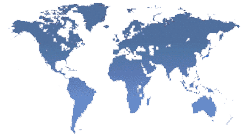

Authors: Kwanchewan Buadaeng, William Miles
Abstract: Amidst the universalizing discourses of citizenship, modernity, and globalization, religious cults have emerged as significant markers of identity maintenance. This paper will examine the case of the Karen along the Thailand-Burma border (particularly the Telakhon, Luebaw Sadong, Vee Mong) and the French West Indians of Martinique (with respect to Rastafarianism, Quimboiserie/Vodon, SDA, and Evangelicalism). In both cases, some citizens have succumbed to the assimilating pressures of modernization and state development projects while others have stuck to older, or gravitated to newer, religious cults to preserve group distinctiveness. Despite important differences arising from pre-industrial vis-à-vis modernistic status of the two cases, the Karen-Martinican cases highlight how group identification through religion transcends developmental change.
Title: "Religious cults as cultural resistance: the Karen and Martinican cases"
Bibliography
Papers (Background Texts)
For further project information contact Olga Buhkina. For other ACLS contacts, see staff listing.
© American Council of Learned Societies, All Rights Reserved